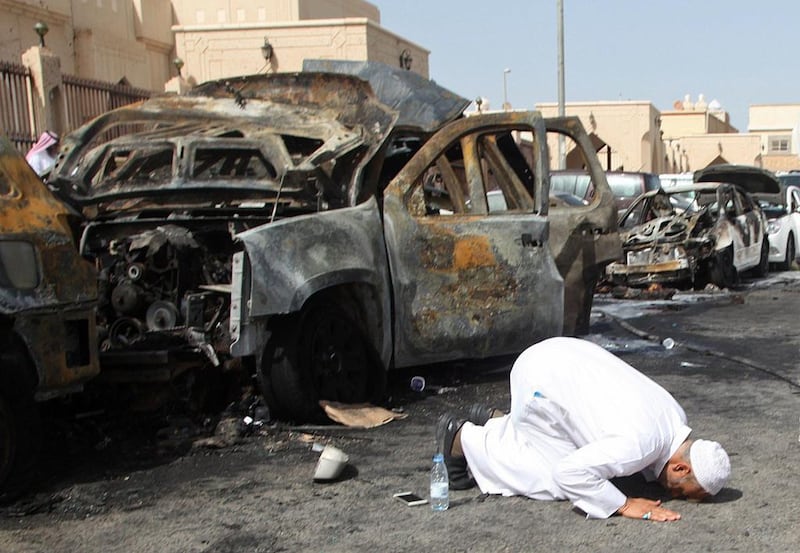Saud Alsanousi’s latest novel, Mama Hissa’s Mice, begins in 2020, when a young Kuwaiti man finds himself amid the ruins of his country.
He begins to remember his early childhood through observing the relationships between his friends. He remembers that “they” are different from “us”, and there is a “Shiite” who is different from “Sunni”. That distinction was very odd to him. But whenever he tried to ask adults about it, he didn’t receive a satisfactory answer.
He lived with his Sunni friend, Fahad. Their neighbour, Sadeq, was their Shiite friend. The child discovers how major political events revealed the family's view on things. For example, the first event was the Iraq-Iran war, when Kuwait was an ally of its Sunni "sister" Iraq against Iran. But such views are shattered when Iraqi soldiers occupy Kuwait and all perceptions changed.
The close friends decide to start a national organisation to spread unity in the community. But the story ends with the death of one of them at the hands of his colleague to show that the flames of sectarianism can burn in almost everyone, no matter how they tried to stay away from the conflict. The story ends with the narrator and his friend running away from a group of people who are fighting each other because of their differences.
Alsanousi, who was the 2013 recipient of the International Prize for Arabic Fiction (often referred to as the Arabic Booker) for his book The Bamboo Stalk, explores the big dilemma of sectarianism by trying to read the future based on what is happening in the Middle East now. The author imagines the events that will take place if sectarianism thrives in the Gulf, warning against the growing “sedition” between Shiites and Sunnis.
______________________________________________________________
Read more about sectarian tensions:
■ States are fragile and sectarianism knows no borders
■ Iraqis are faced with the terrible choice of terrorism or sectarianism
______________________________________________________________
The author, who is known for tackling taboo topics, focused on Kuwait as an example, providing local tales and details of the lives of its people, exploring important parts of their history and culture, which have been affected by the Arab region as a whole.
The message of the book is clear. The Gulf should be wary of what appears to be a growing conflict. According to the Pew Research Centre: Religion & Public Life, Shiites make up about 65 to 75 per cent of the population in Bahrain, about 20 to 25 per cent in Kuwait and about 10 to 15 per cent in Saudi Arabia.
Events in the wider region have played a role in bringing what had been a settled conflict to the surface. Iran has been accused of fuelling tension. Extremist groups, such as ISIL, are taking advantage of the situation to flex their muscles.
The twin suicide bomb attacks against Shiite mosques in eastern Saudi Arabia are part of the scenario the author imagines in his book. This is the notion that intolerant ideas that take root in childhood can explode years later, causing serious harm to society.
In Saudi Arabia, in particular, Sunni religious publications, school materials and many clerics are outspoken. Some of the prominent clerics often talk about “the evil Shias” claiming they are all loyal to Iran and that they are intent on harming Sunnis.
It’s important to condemn sectarian violence, as Saudi’s Grand Mufti Abdel Aziz Al Sheikh did after the first suicide bomb on May 23. But it’s more important to tackle divisive ideas that can lead to violence.
Sectarianism needs to be tackled from a very young age, within families and in schools.
By writing his novel, the author has tried to demonstrate that intolerant ideas can eventually lead to wars. This is something that we’re already witnessing on the ground today, with wars being waged on sectarian lines.
aalmazrouei@thenational.ae
On Twitter: @AyeshaAlmazroui





